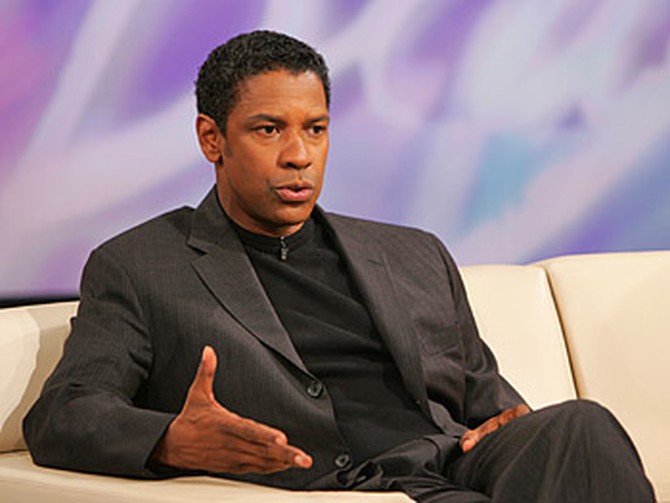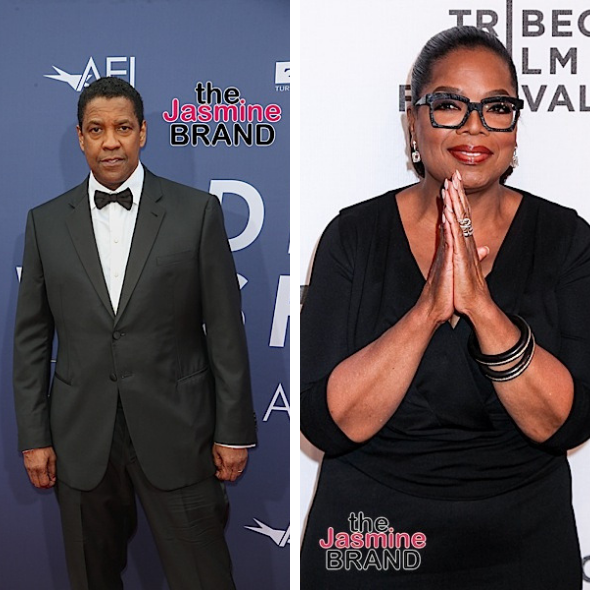The Challenges Facing Black Actresses in Hollywood: Taraji P. Henson and Oprah Winfrey’s Controversy
In recent days, the entertainment industry has been abuzz with allegations from several prominent Black actresses, including Taraji P. Henson, who are speaking out against Oprah Winfrey regarding unfair compensation.
Henson, alongside support from other big names like 50 Cent and Denzel Washington, has shed light on troubling pay disparities and working conditions that many Black artists face in Hollywood.
Taraji P. Henson, who recently starred as Shug Avery in the highly anticipated musical drama *The Color Purple*, has opened up about the challenges she faced during production.
The film, produced by Oprah Winfrey, is a retelling of Alice Walker’s beloved novel, previously adapted into a film in 1985, in which Oprah herself starred.
In an interview with *The New York Times*, Henson discussed various logistical and safety issues encountered on set, including concerns about being provided with rental cars to commute to filming. “This is an insurance liability; it’s dangerous.

Now they’re robbing people. What do I look like taking myself to work by myself in a rental car?” Henson said, expressing her frustration.
Determined to advocate for better working conditions, Henson fought for appropriate arrangements for the cast. She recounted asking for drivers or security for transportation, emphasizing that such requests were reasonable. “I’m not asking for the moon,” she noted, but was met with resistance.
“If we do it for you, we have to do it for everybody,” the production team allegedly replied. Henson highlighted her disappointment at having to fight for basic needs and recalled previous struggles on the set of *Empire*, where she had advocated for better facilities.
Henson’s concerns were echoed by her co-star, Danielle Brooks, who noted that during early rehearsals, the cast lacked proper dressing rooms and adequate food arrangements.
“Oprah corrected it for us. Taraji was our voice,” Brooks mentioned, reflecting on the challenges they faced and the impact of Henson’s advocacy.

The conversation took an emotional turn when Henson was asked about her future in acting. Tears in her eyes, she candidly expressed her exhaustion from relentless efforts and the lack of fair compensation, stating, “I’m just tired of working so hard… and getting paid a fraction of what I’m worth.”
She also reflected on the disheartening nature of renegotiations, feeling as though she was starting from scratch each time.
The controversy intensified as insiders disclosed that tensions between Henson and Winfrey became palpable during the film’s promotional tour. Reports indicated that disputes over Henson’s compensation were heated, leaving fans to speculate on her seemingly lackluster enthusiasm during interviews and red carpet events.
Henson’s revelations about pay disparities have opened a broader discussion about the undervaluation of Black talent in Hollywood. “It’s breaking my heart,” she stated, expressing fatigue over the recurring narrative of Black women being undervalued despite their achievements.
Henson’s experience was a stark reminder of the systemic barriers that persist in the industry, where Black actresses often face lower pay and fewer opportunities compared to their white peers.
One of Henson’s most startling points was addressing the baseless claim that there is limited funding for Black actors due to their stories supposedly not resonating internationally. This myth has been repeatedly disproven as films featuring diverse casts have performed exceptionally well globally.
Henson highlighted her own experiences, noting the disparity between her $150,000 pay for her Oscar-nominated role in *The Curious Case of Benjamin Button* compared to her co-stars who earned millions.
Despite her stature as an Academy Award nominee, Henson fought hard for higher compensation, securing an increase but still falling short of the $500,000 she initially sought. This struggle underscores the glaring disparities that remain within Hollywood.

The accusations against Oprah Winfrey have sent shockwaves through the entertainment industry, as she has long been viewed as a champion for empowerment and equality.
Fans and industry insiders are grappling with the contradictions of someone known for advocating against discrimination being accused of contributing to the underpayment of Black actresses.
The tension between Henson and Winfrey became more evident during a viral video from a promotional event for *The Color Purple*. The footage captured an unmistakable awkwardness between the two, raising questions about the underlying dynamics of their relationship.
Observers speculate that Henson’s advocacy for fair compensation may have created a rift, highlighting the complexities of navigating such a powerful industry.
Speaking out against industry giants like Oprah Winfrey carries significant risks for actors, particularly for those like Henson who challenge the status quo. The fear of potential repercussions can deter many from voicing their concerns.
This atmosphere of fear is illustrated by the experiences of others in the industry, such as Mo’Nique, who claims to have faced backlash from Winfrey and Tyler Perry after refusing to participate in unpaid press events.

The risks extend beyond career implications; they include the potential loss of a fan base and facing costly legal battles. Oprah’s extensive resources create an intimidating landscape for anyone challenging her influence, which underscores the systemic nature of the barriers Black artists face.
Amidst the controversy, Denzel Washington stands out as a vocal advocate for Black artists in Hollywood. The Academy Award-winning actor has consistently addressed systemic racism and inequities, championing equal pay and opportunities for his peers.
Washington’s commitment to these issues is evident in his efforts to bring about real change, positioning him as a beacon of support for those speaking out against injustice.
As the conversation surrounding pay disparities and the treatment of Black actresses unfolds, the industry is being challenged to confront these systemic issues head-on.
The voices of artists like Taraji P. Henson and the support of advocates like Denzel Washington are pivotal in the ongoing fight for equality and fair treatment in Hollywood. The future remains uncertain, but the call for change is growing louder, with artists uniting to demand the respect and compensation they deserve.